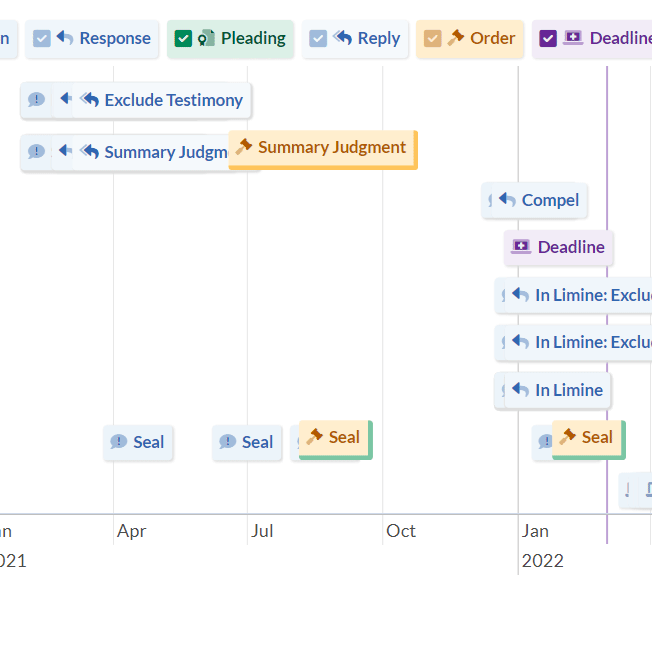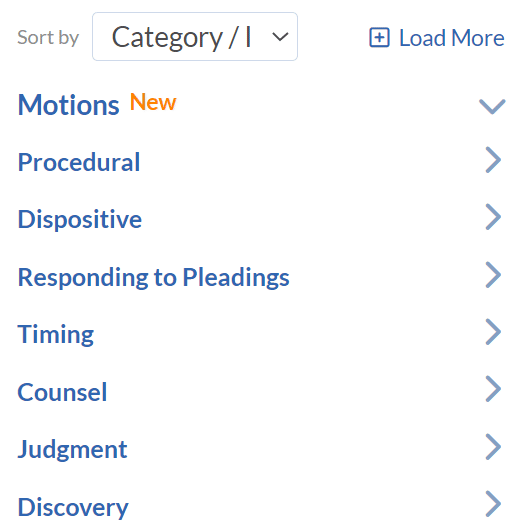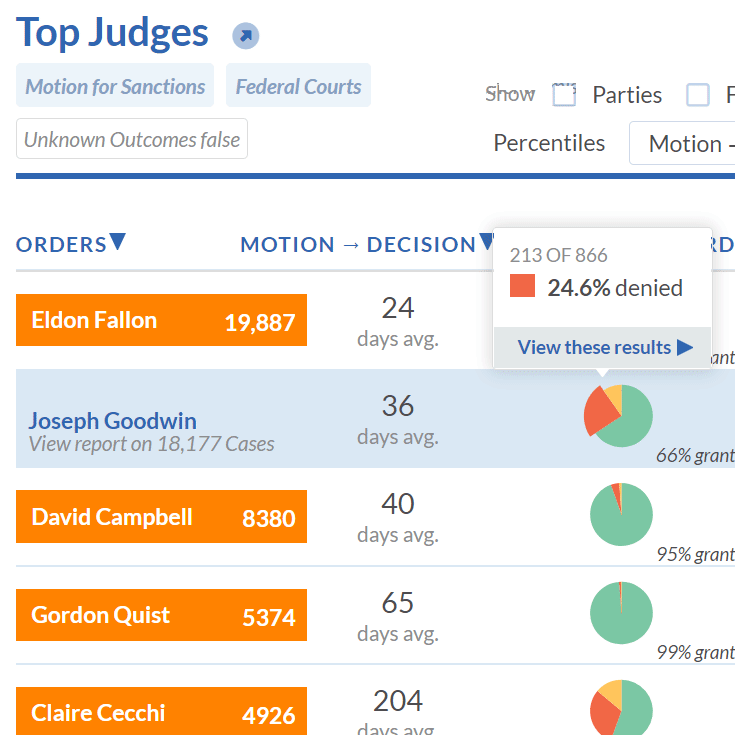Review litigation faster.
Pleading tags save time, simplifying litigation complexity.
Reviewing litigation dockets is time-consuming, especially for complex cases with hundreds of docket entries. Docket Alarm scans dockets for motions, pleadings, and other events, "tagging" relevant docket entries with intuitive pleading tags.
Docket Alarm's pleading tags distill complex cases into a user-friendly timeline, and provides efficient search and analytics tools. Review complex litigation in seconds.













